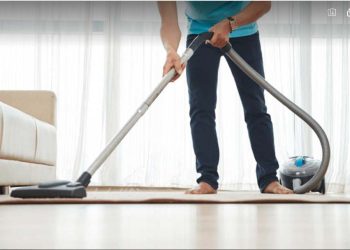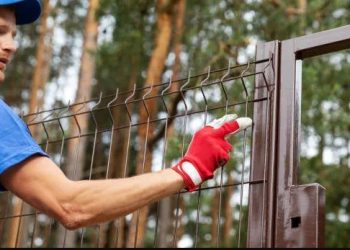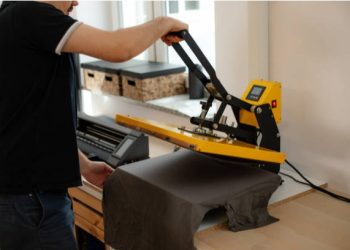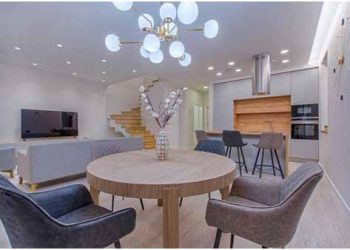Many individuals are unsure about the distinctions between luxury vinyl sheet, or LVS, and epoxy flooring and other resinous treatments, as well as which gives the most advantages. For business uses, these flooring styles promise to provide smooth, long-lasting, and hygienic surfaces. Which is the superior option?
Examine our five reasons why epoxy floor and other resinous systems are typically superior than luxury vinyl flooring in a range of industries and applications.
1. Adhesion & Bonding
Water-based adhesives and heat-welded seams are used by LVS. When exposed to alkaline moisture vapour, which is common in concrete slabs, the adhesives underneath the LVS may deteriorate, undermining the bond and producing bubbling, seam separation, and other floor surface concerns. Heat-welded seams may split, enabling strong cleaning chemicals and other things to escape under the surface, causing the adhesive to break down even more.
There are no adhesives or heat welds required with epoxy and other resinous solutions. These fluid-applied floors adhere to the prepared concrete slab directly and fully, minimising the chance of cracked or split seams. Additional protection against alkaline substrate moisture vapour transport is provided by superior chemical and moisture resistant alternatives.
2. Sanitation and Hygiene
Heat-welded seams in the LVS flooring construction are vulnerable areas. When subjected to strong cleaning solutions and disinfectants, temperature fluctuations, or excessive traffic, the seams might fracture and curl. Any crack in the floor surface attracts germs and pathogens looking for a place to thrive. Between the concrete slab and the LV sheeting, pockets of moisture may form, providing the ideal habitat for deadly microorganisms to grow. Excessive mould development on the bottom of existing LVS that has been removed is not unusual during refurbishment.
Unlike LVS, epoxy flooring and resinous systems become a part of the concrete slab. Florock coatings provide industrial-strength chemical, acid, and alkaline resistance and may be cleaned numerous times per day. Antimicrobial additives are available to assist inhibit microbe development throughout the flooring material’s depth. There are also fewer locations for germs and mould to thrive since there are essentially no gaps or seams.
3. Convenience and Cost-Effectiveness of Installation
LVS must be implemented in a temperature range that is quite small. Outside of these conditions, installation might result in unsatisfactory performance and violate the manufacturer’s warranty. LVS’s constraints may cause extra schedule juggling, delays, and greater installation costs in new projects when environmental controls may not yet be in place.
Resinous flooring comes in a number of formulas that may be laid at a variety of temperatures, including temperatures far below zero. This provides the most flexibility and cost savings on the worksite.
4.Friendliness to the Environment.
Before a new LVS floor can be installed, the old one must be removed. The new LVS installation produces cut-off material and garbage, which is repeatedly dumped in nearby landfills. LVS flooring also includes polyvinyl chloride, phthalates, and formaldehyde, all of which may outgas for months after installation, resulting in poor indoor air quality (IAQ).
Epoxy coatings and resinous floors are very long-lasting. When the time comes for a recoat, the current floor may typically be left in place. Even if a new floor covering is chosen in the future, the new material may normally be put immediately over the epoxy or resinous system flooring. The cost savings, the avoidance of installation cut-off trash, and the avoidance of disposal fees are just the beginning. Florock products, with a few exceptions, have 0% VOC and are entirely inert after full cure, with no outgassing. There are no phthalates or formaldehyde in them.
5.Maintenance.
At first glance, LVS flooring systems seem to be low-maintenance. However, since the surface lacks a high-performance finish, the top layer may wear away in high-traffic areas, robbing the surface of its simple cleanability. Managers are thus forced to resort to waxing and other labor-intensive measures in order to maintain the floor’s appearance and performance. Chemical resistance, as well as abrasion, puncture, rip, and gouge resistance, are often low in LVS flooring.
On the other hand, epoxy floors and other high-performance resinous systems consistently outperform LVS in terms of wear, scratch, and puncture resistance, as well as improved chemical, acid, and stain resistance. To retain their beauty, shine, and durability, decorative, fluid-applied industrial grade floors do not need waxing or replenishment. That means no waxing, stripping, harsh cleaners, or crew training for specialist maintenance equipment—and huge cost reductions all around. In compared to LVS, resinous and epoxy floors have an exceptional lifespan value.
For more information about the benefits of epoxy floors compared to luxury vinyl flooring, get in touch with epoxy floor installers today.

















